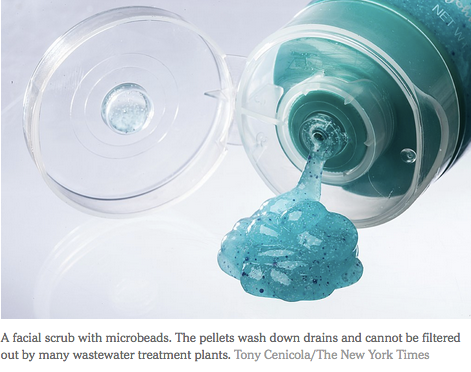What’s the problem?
About eight million tons of plastic enter the world’s oceans each year, according to a 2015 report by the journal Science. While microbeads represent only a small percentage of those plastics, there is growing concern about their presence in oceans, lakes and rivers.
Microbeads that wash down drains cannot be filtered out by many wastewater treatment plants, meaning that tiny plastics slip easily into waterways. Fish and other marine animals often eat them, introducing potentially toxic substances into the food chain.
A single shower can flush as many as 100,000 microbeads, according to a 2016 report by the Environmental Audit Committee of the House of Commons in Britain. That adds up pretty quickly.




